A separate survey of U.S. teens asked how they feel when topics related to racism or racial inequality and sexual orientation or gender identity come up in the classroom.
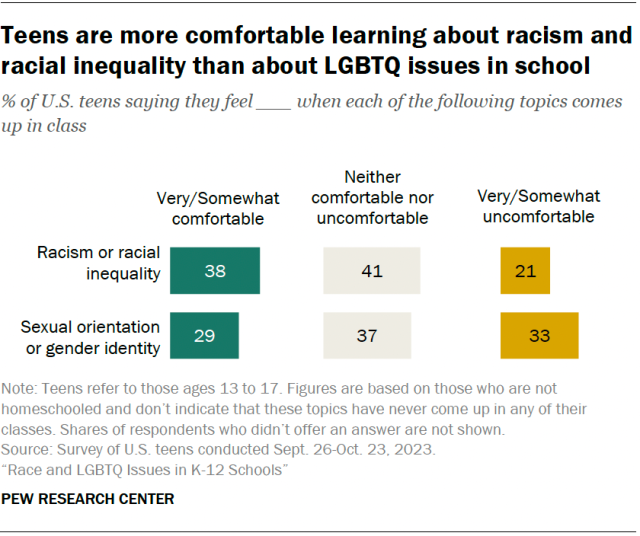
Among teens who are not homeschooled and who say topics related to racism or racial inequality have come up in their classes, more say they feel comfortable (38%) than say they feel uncomfortable (21%) when these topics come up.
Views are more evenly split when it comes to sexual orientation or gender identity. Among teens who say these topics have come up in the classroom, similar shares say they feel comfortable (29%) and uncomfortable (33%) when they come up.
About one-in-ten teens (8%) say the topic of racism or racial inequality has never come up in any of their classes. Some 14% say the same about sexual orientation or gender identity.
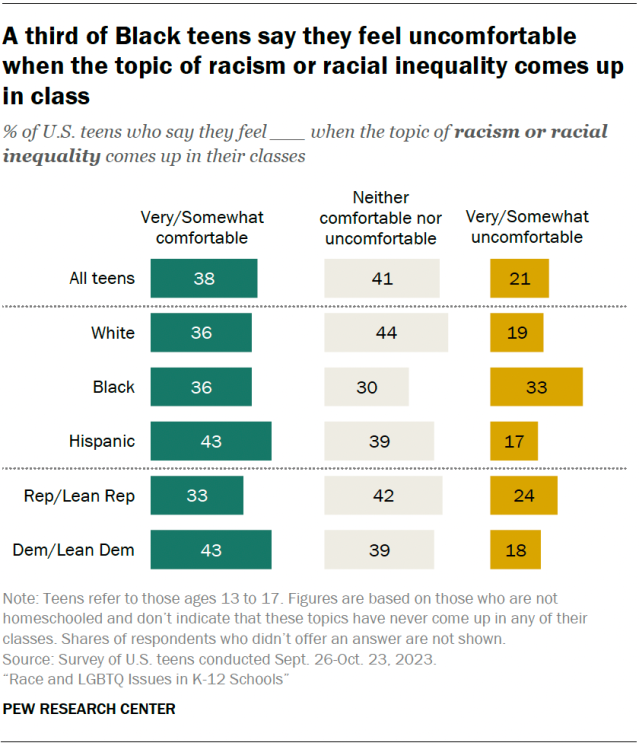
Among those who say the topic of racism or racial inequality comes up in class, comfort levels differ by:
- Race and ethnicity: Black teens (33%) are more likely than White (19%) or Hispanic (17%) teens to say they feel uncomfortable when this comes up in class.
- Partisanship: Teens who identify with or lean toward the Democratic Party are more likely than Republican and Republican-leaning teens to say they feel comfortable when this comes up in class (43% vs. 33%). In turn, Republican teens are more likely than Democratic teens to say they feel uncomfortable (24% vs. 18%).
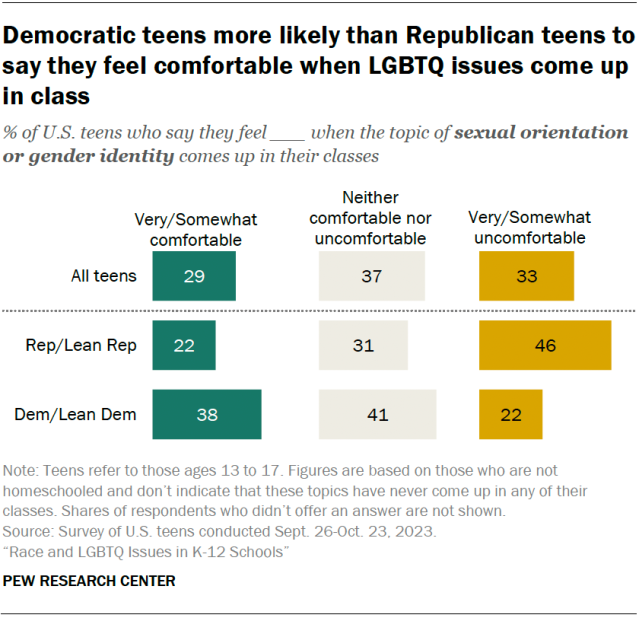
Among those who say sexual orientation or gender identity comes up in class, comfort levels differ by:
- Partisanship: Democratic teens are more likely to say they feel comfortable (38%) than to say they feel uncomfortable (22%) when this comes up in class. Meanwhile, 46% of Republican teens say they feel uncomfortable, far more than the share who say they feel comfortable (22%).
What teens want to learn about slavery
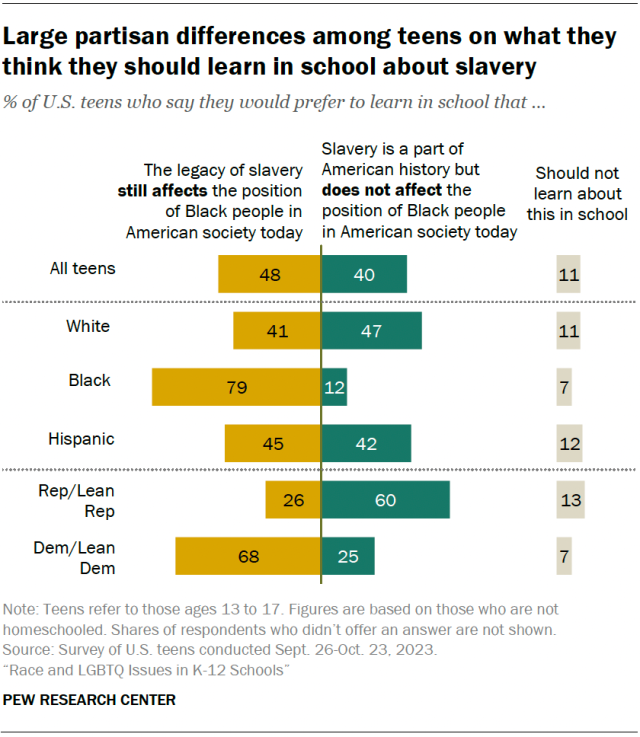
When asked what they would prefer to learn in school about the legacy of slavery, 48% of teens say they’d rather learn that it still affects the position of Black people in American society today.
A smaller but substantive share (40%) would rather learn that slavery is part of American history but does not affect the position of Black people in American society today.
Just 11% say they shouldn’t learn about this topic at school.
Again, views differ by:
- Race and ethnicity: 79% of Black teens say they would prefer to learn that the legacy of slavery still affects Black people today. This is much higher than the shares of White (41%) and Hispanic (45%) teens who say this.
- Partisanship: 68% of Democratic teens would rather learn that the legacy of slavery still affects the position of Black people today. In turn, most Republican teens (60%) say they would prefer to learn that slavery does not affect the position of Black people today.
We saw very similar splits by race, ethnicity and partisanship when we asked K-12 parents this question in 2022.
What teens want to learn about gender identity
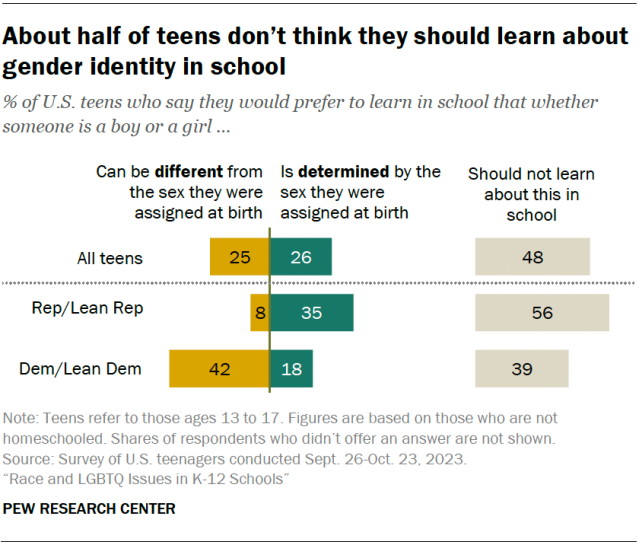
A sizeable share of teens (48%) say they should not learn about gender identity in school.
A quarter say they would rather learn that whether someone is a boy or a girl can be different from the sex they were assigned at birth.
A similar share (26%) say they would prefer to learn that whether someone is a boy or a girl is determined by the sex assigned at birth.
These views differ by partisanship. About four-in-ten Democratic teens (42%) say they would rather learn in school that a person’s gender can be different from their sex at birth. By comparison, 8% of Republican teens say this.
Republican teens are about twice as likely as Democratic teens to say they’d rather learn that a person’s gender is determined by their sex at birth (35% vs. 18%).
A majority of Republican teens (56%) don’t think they should learn about this topic in school.




